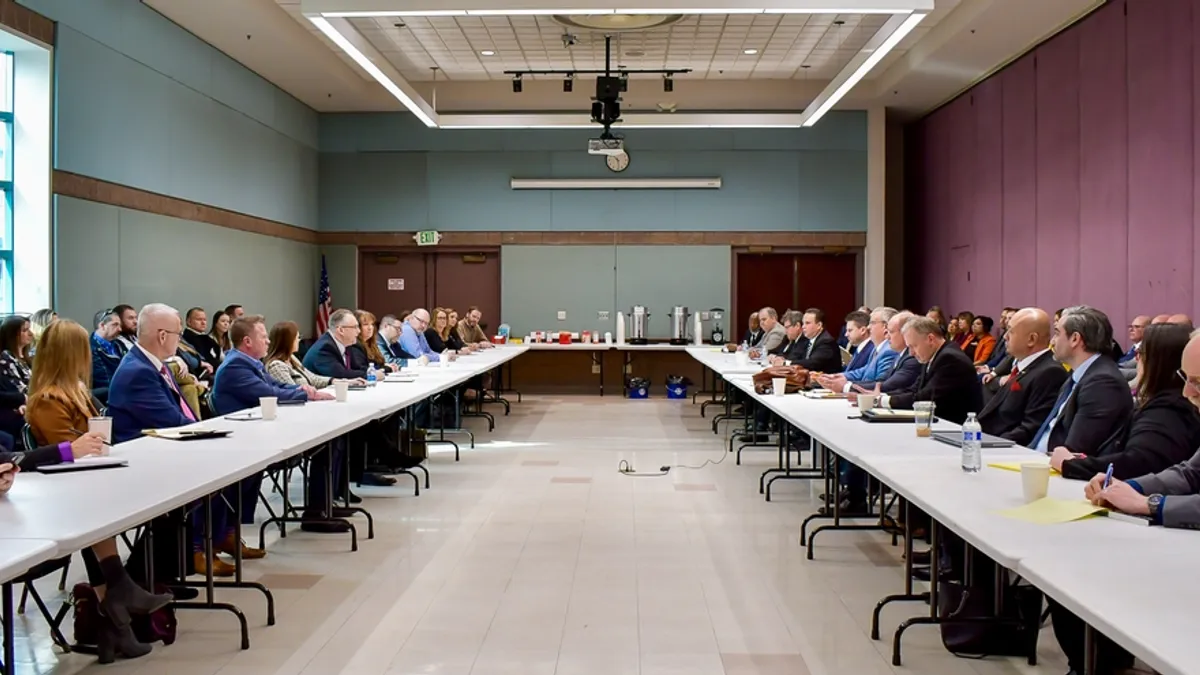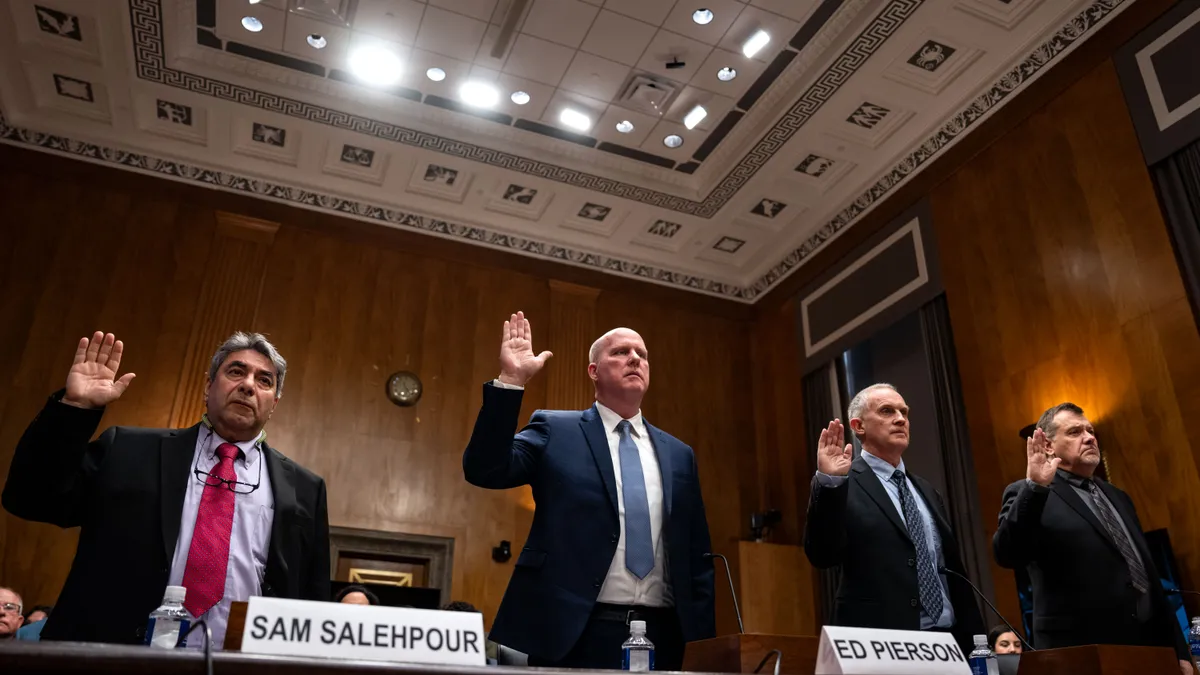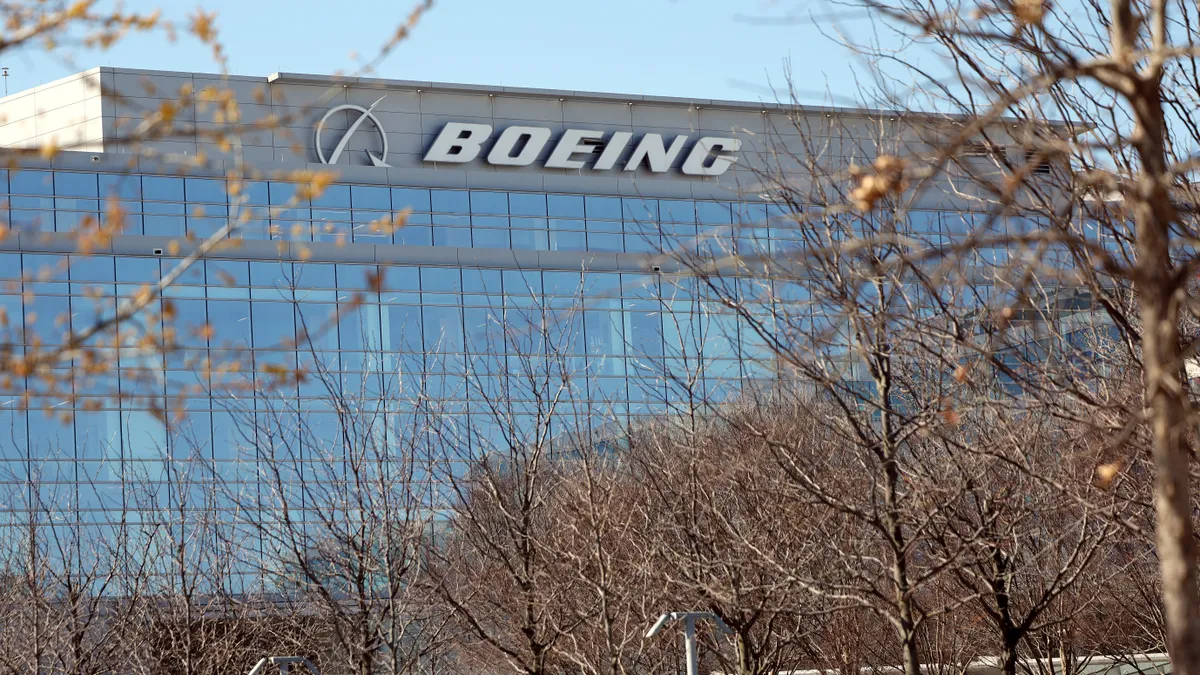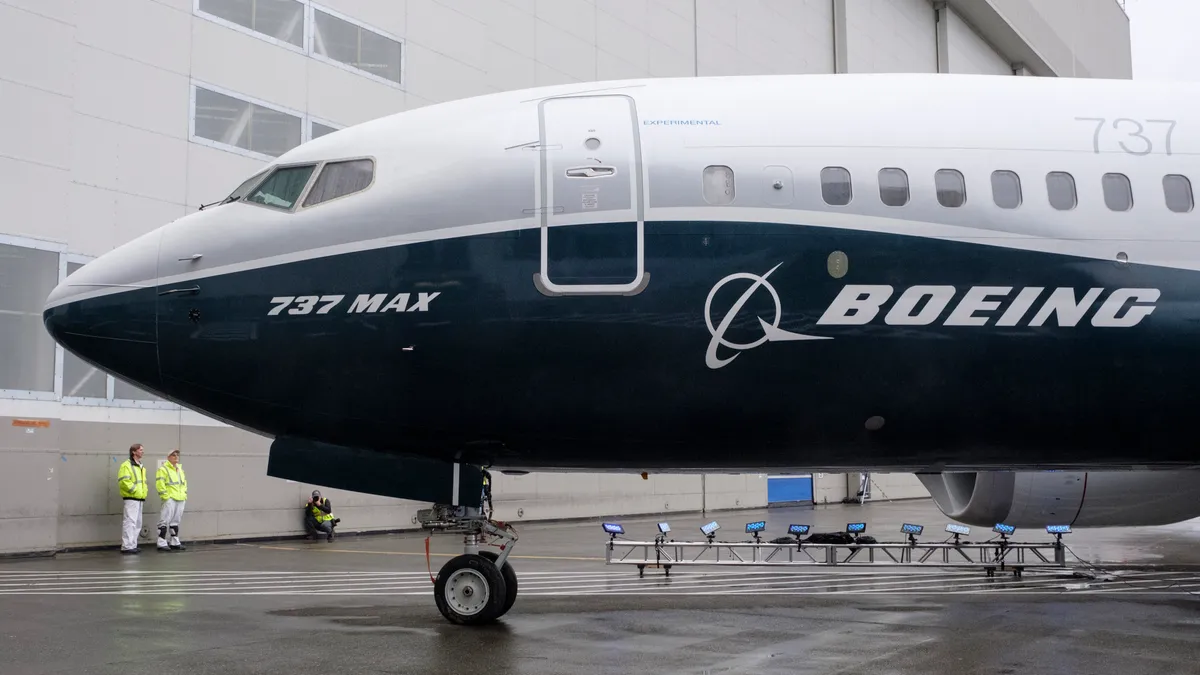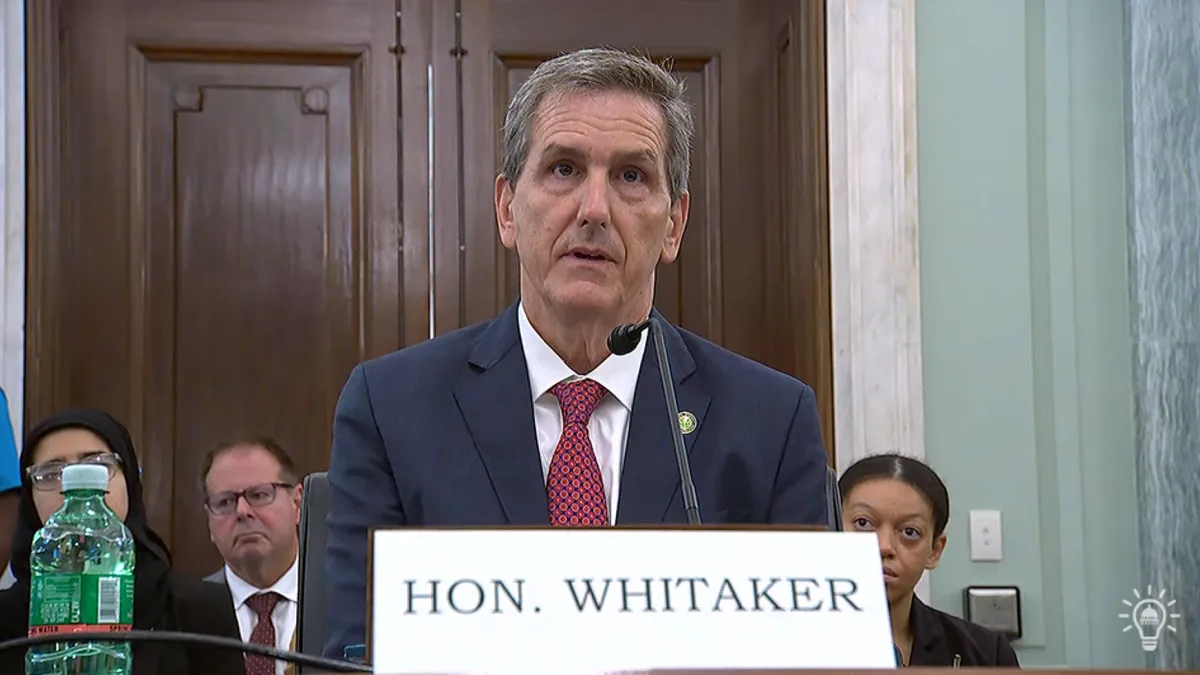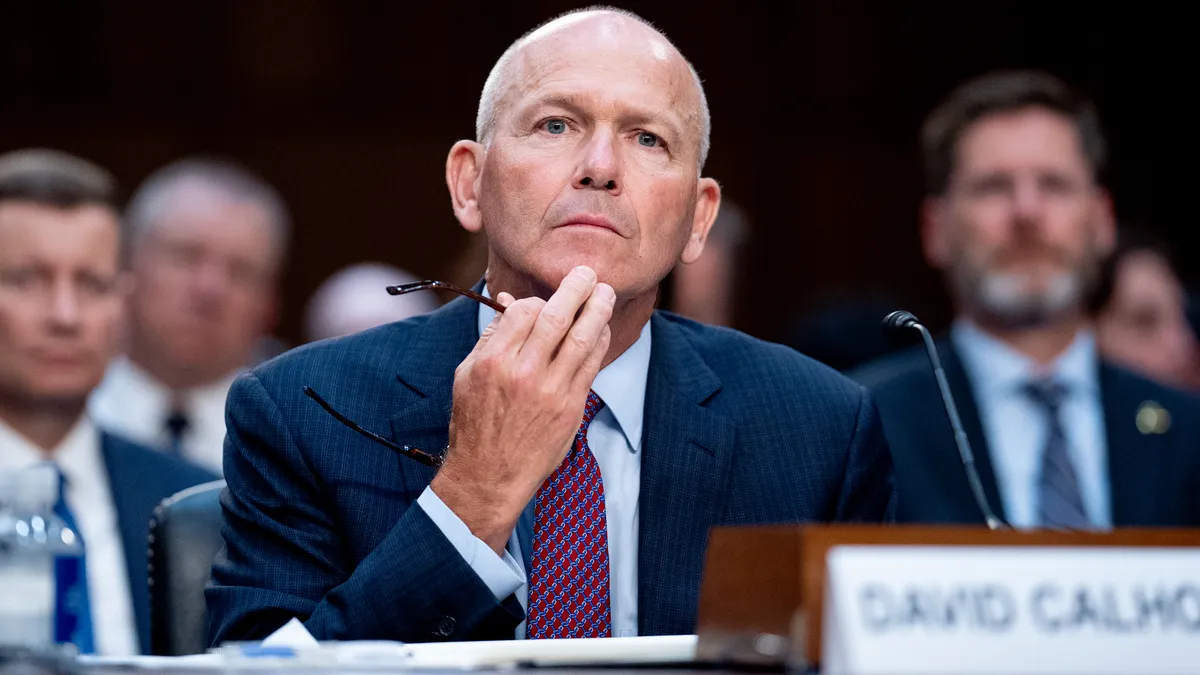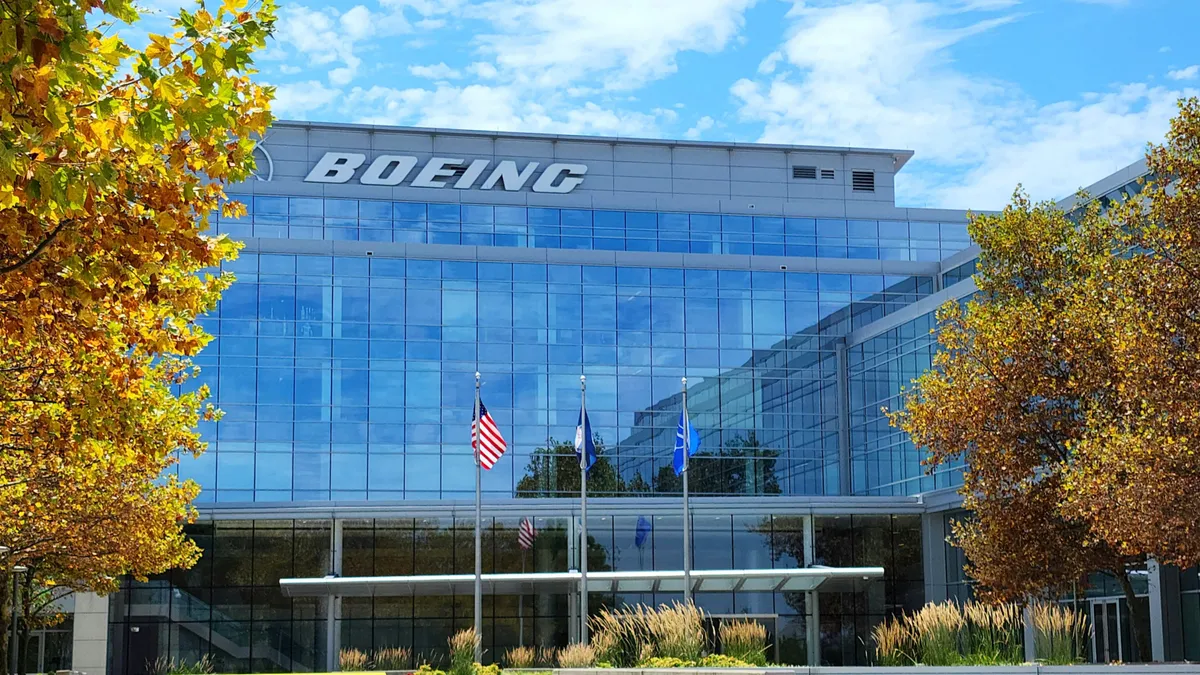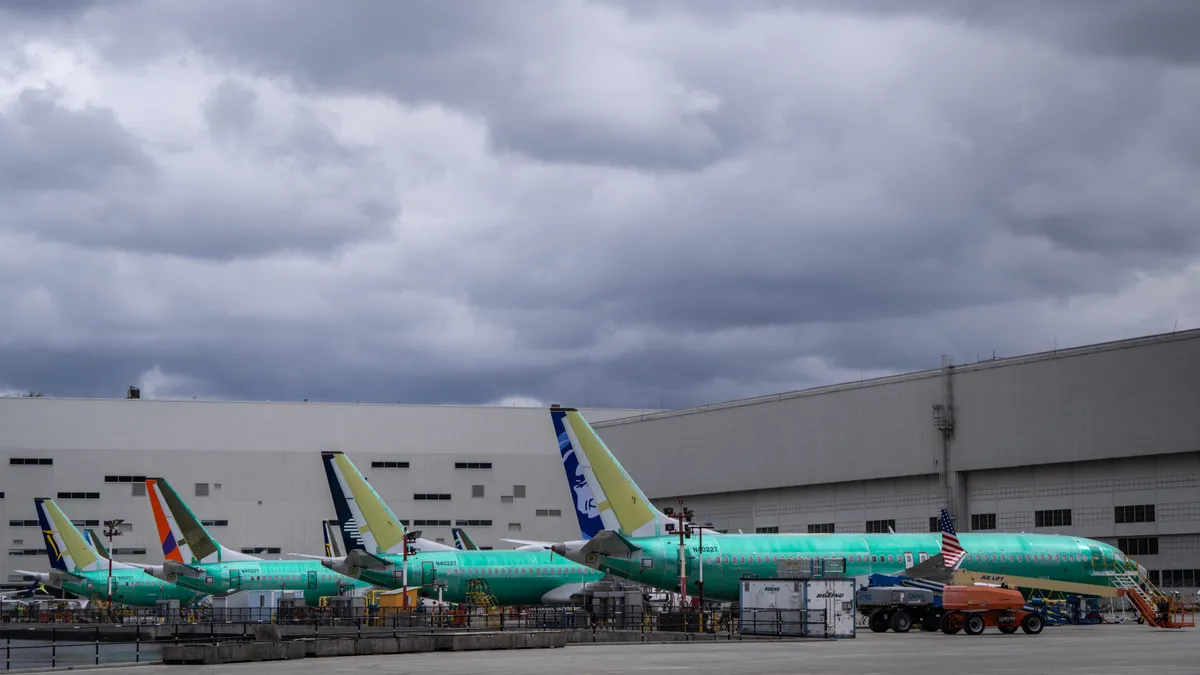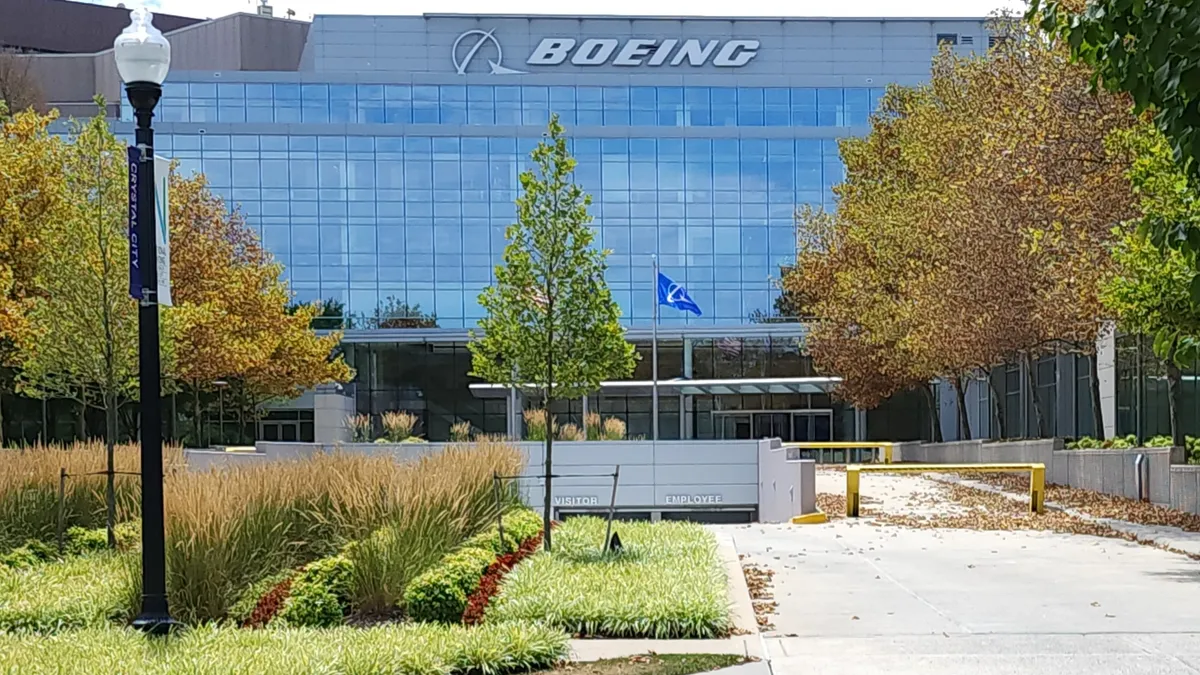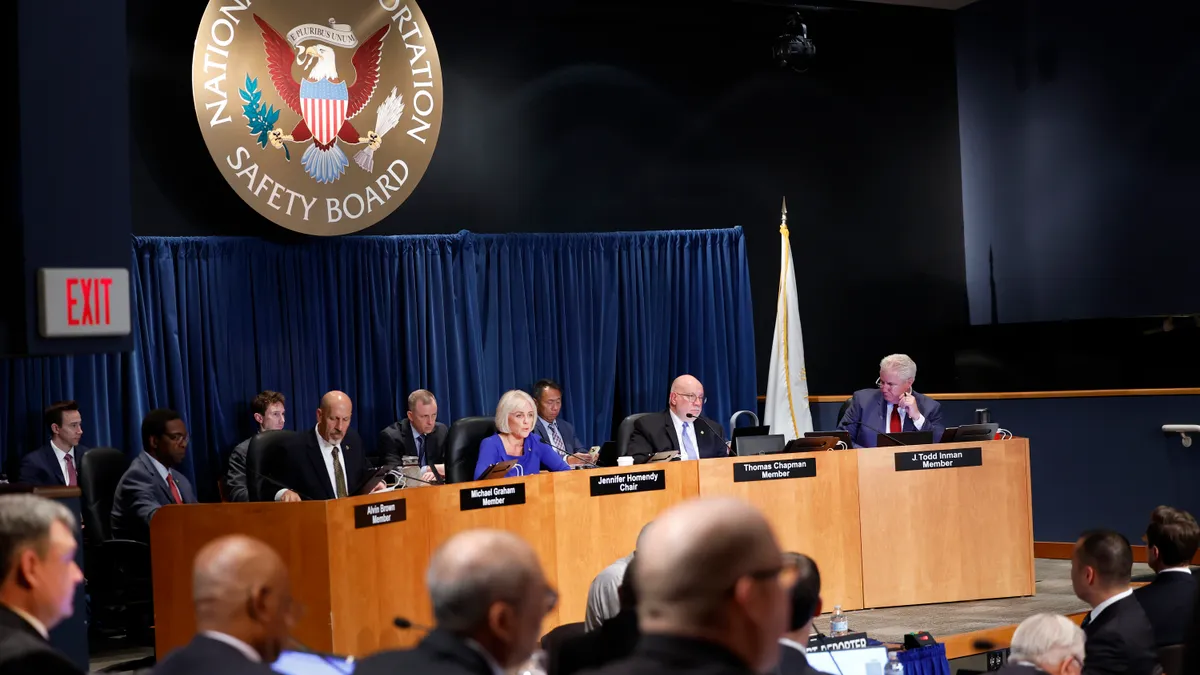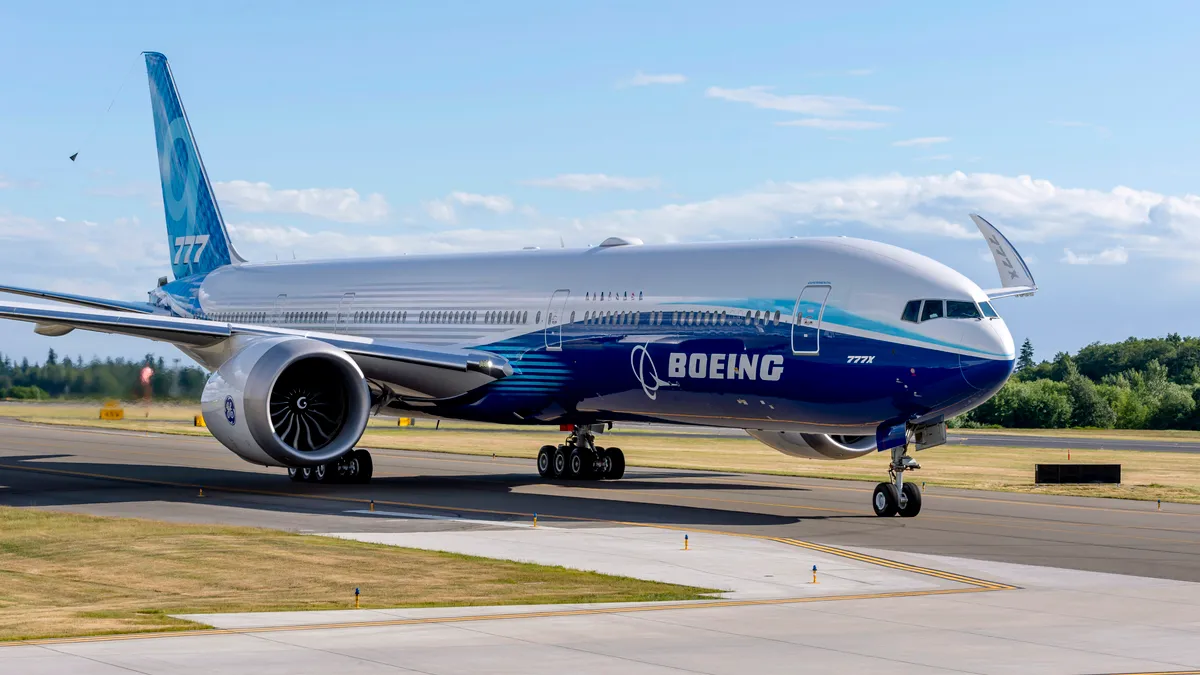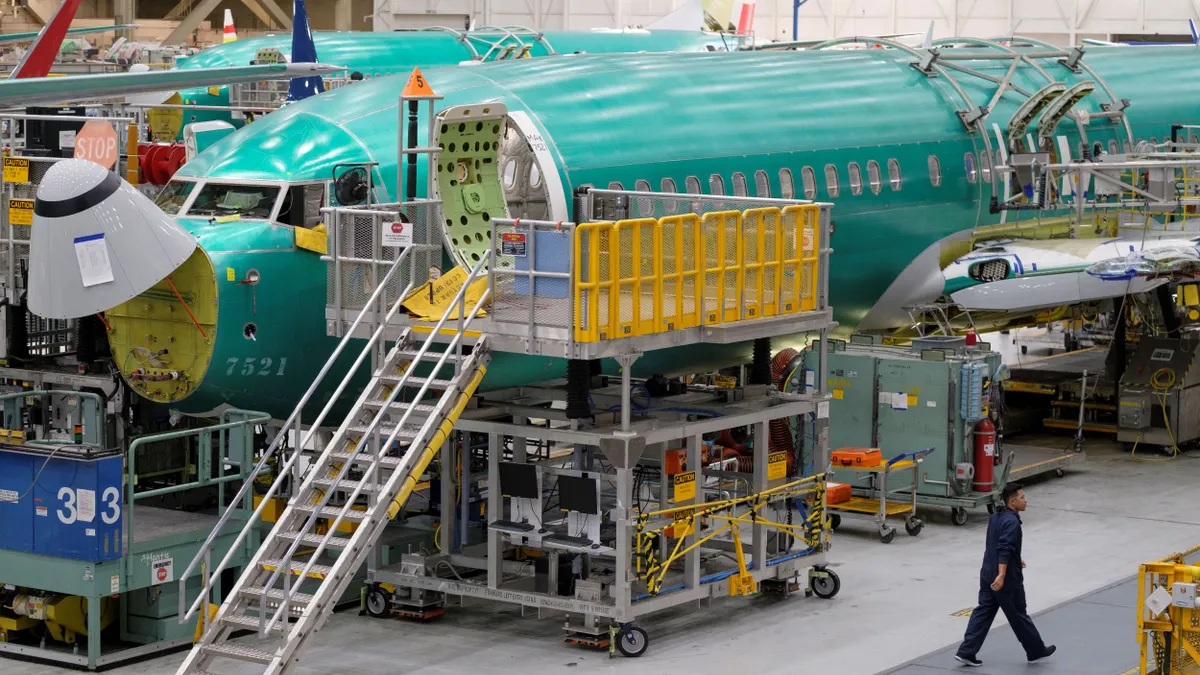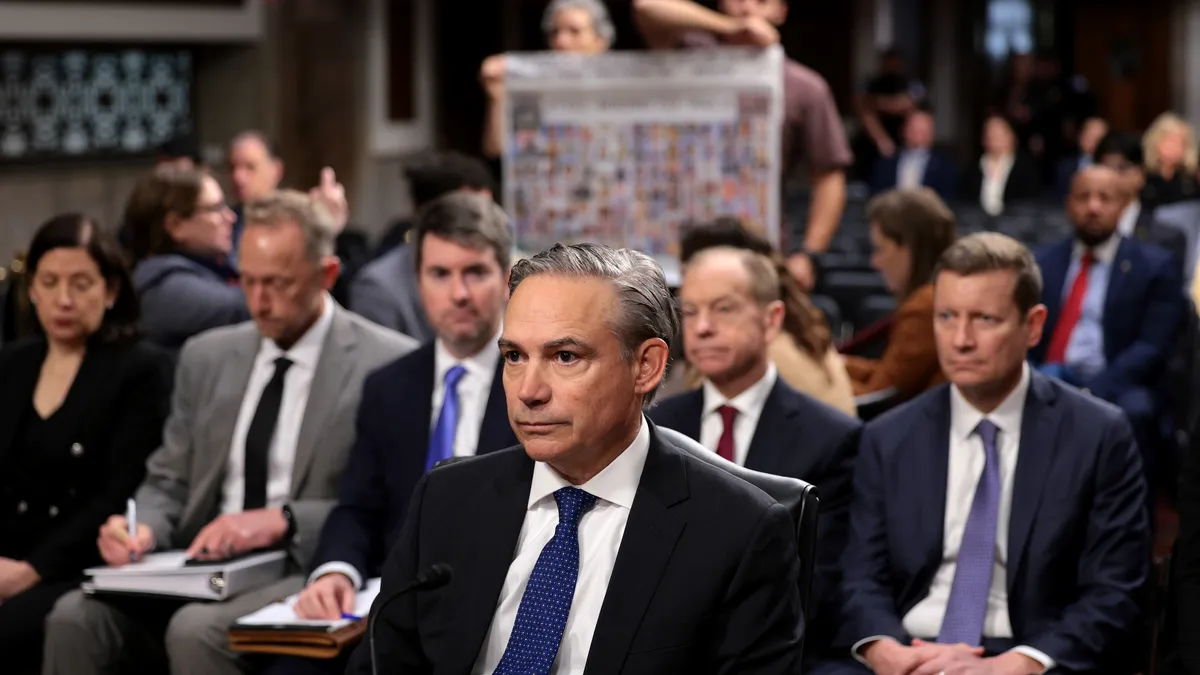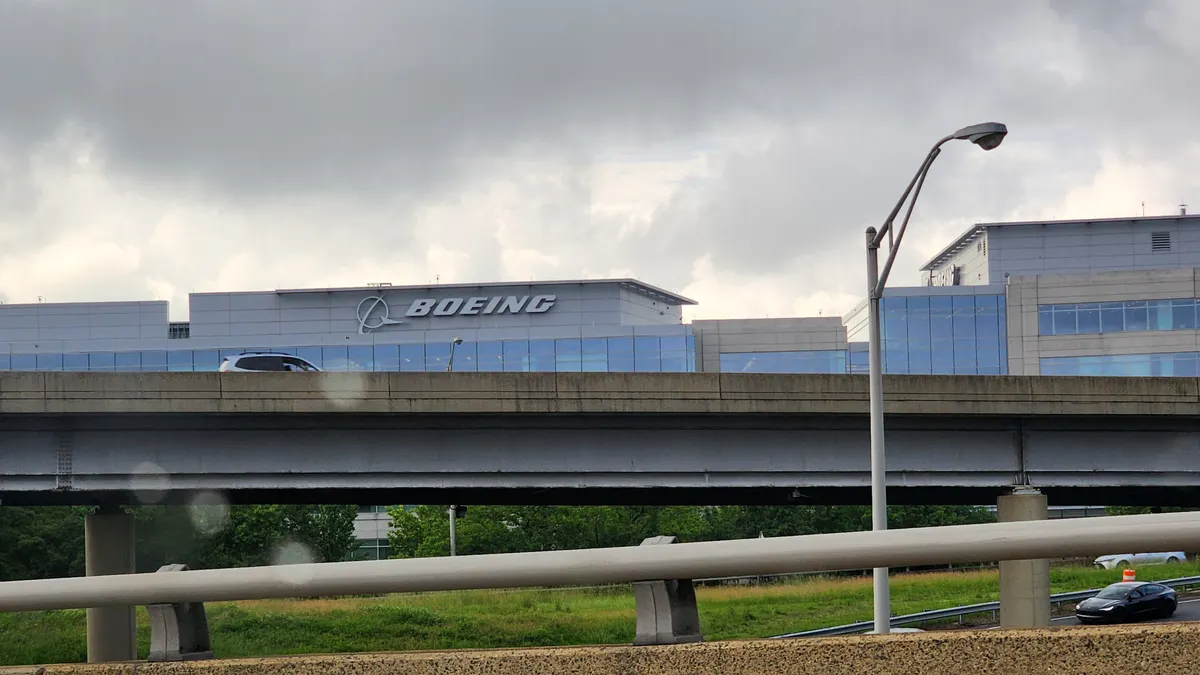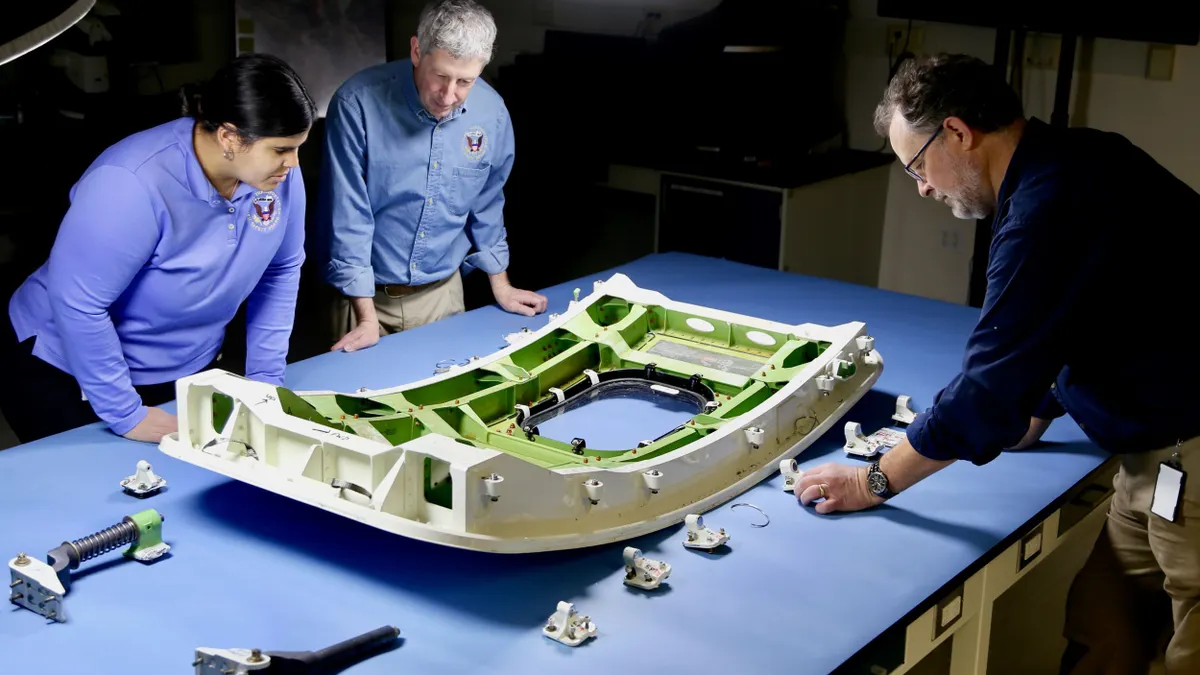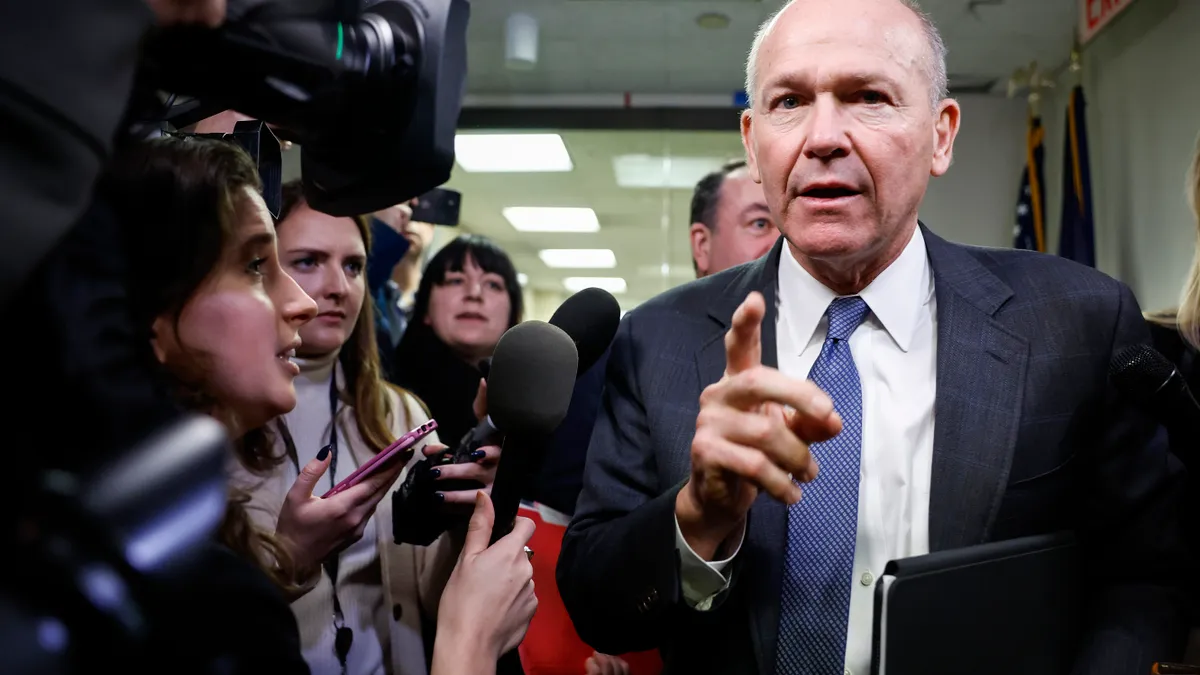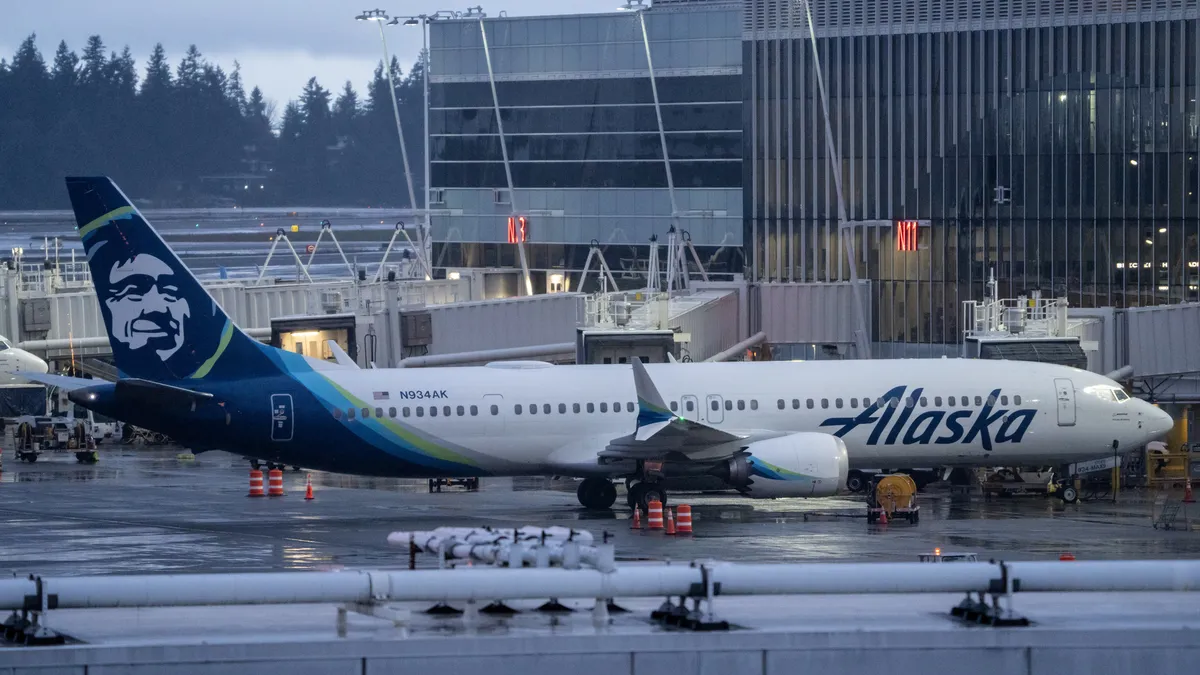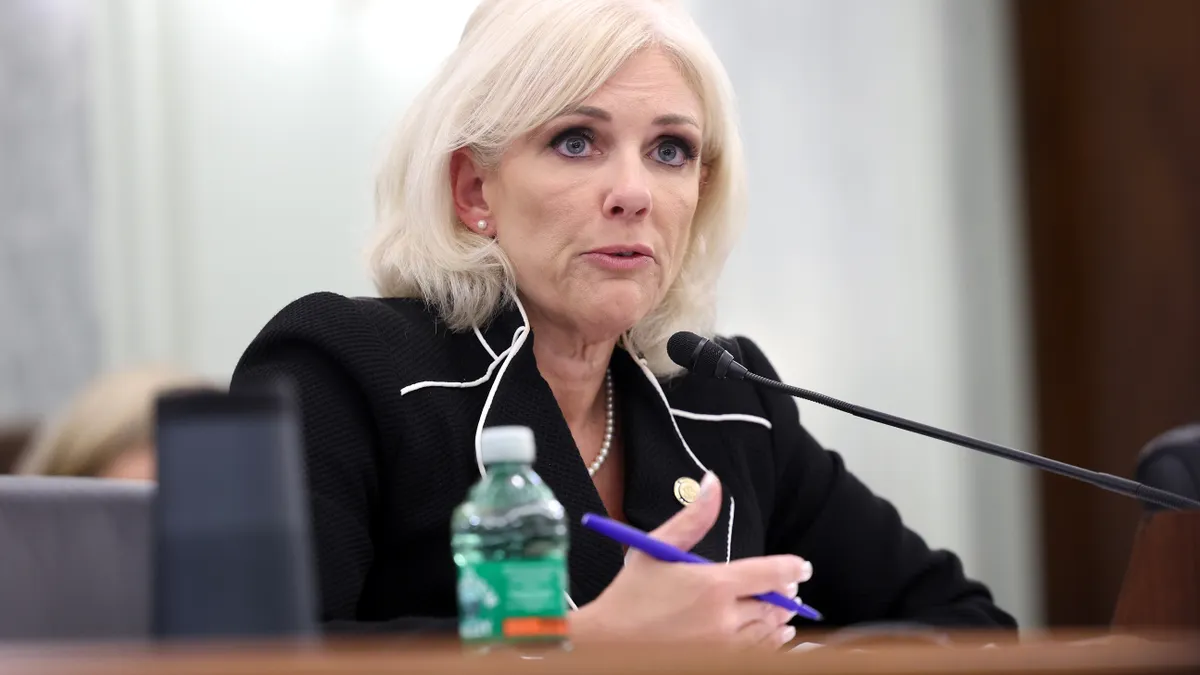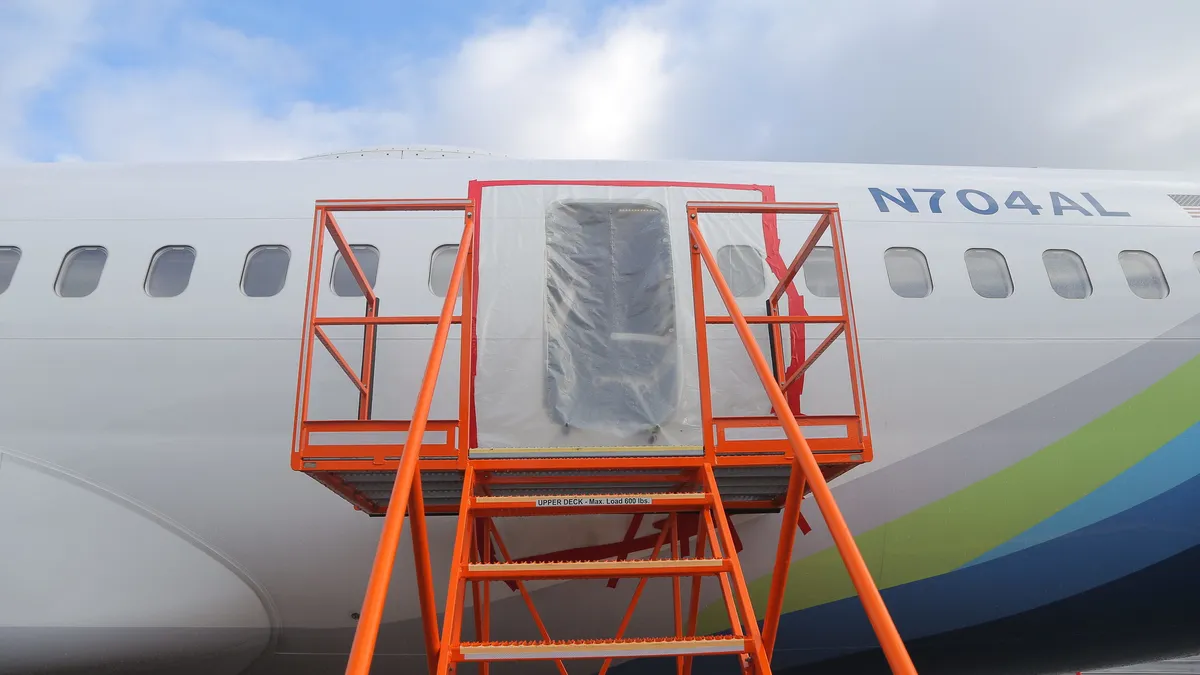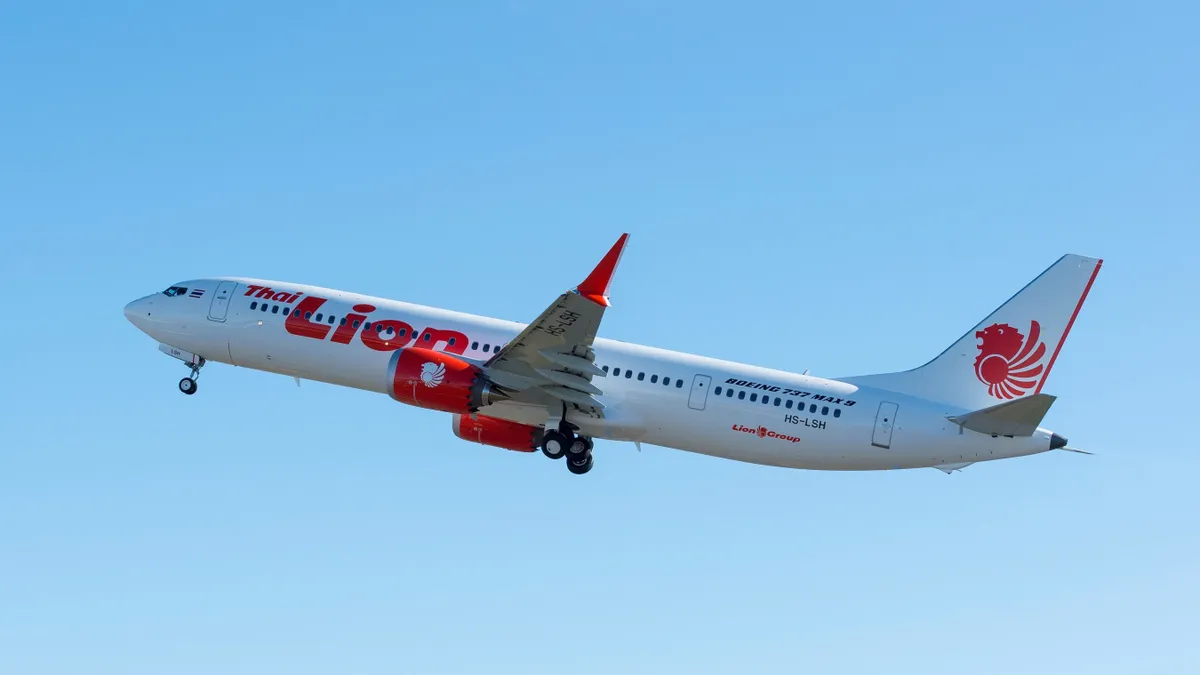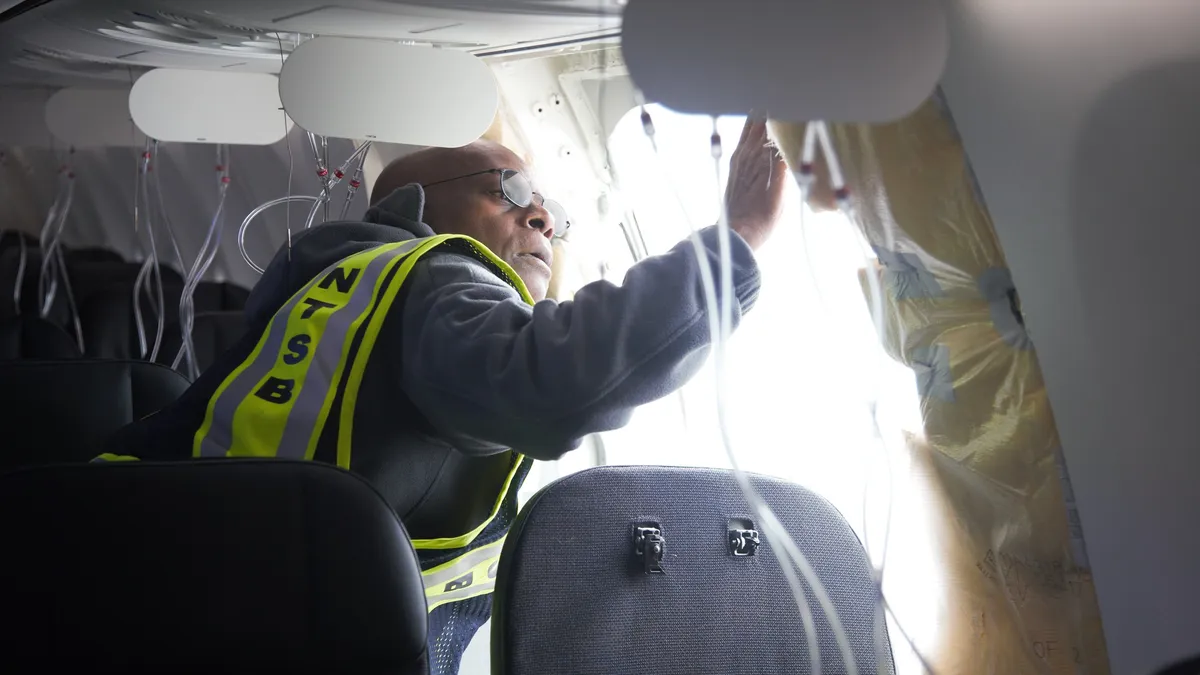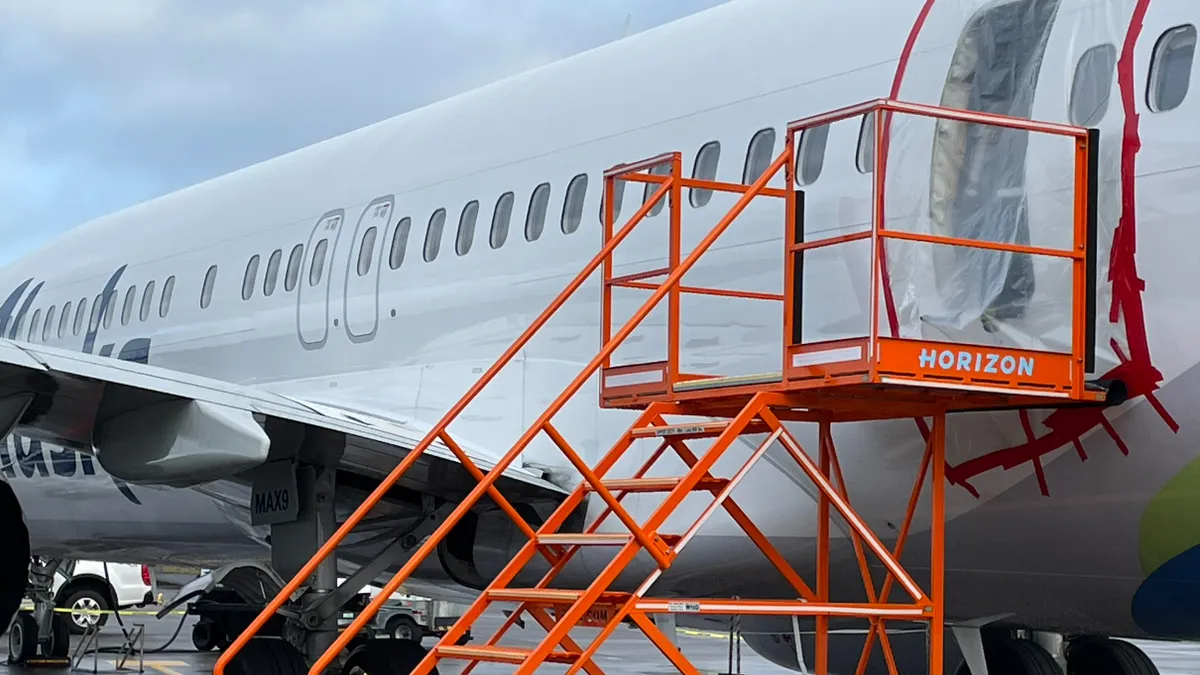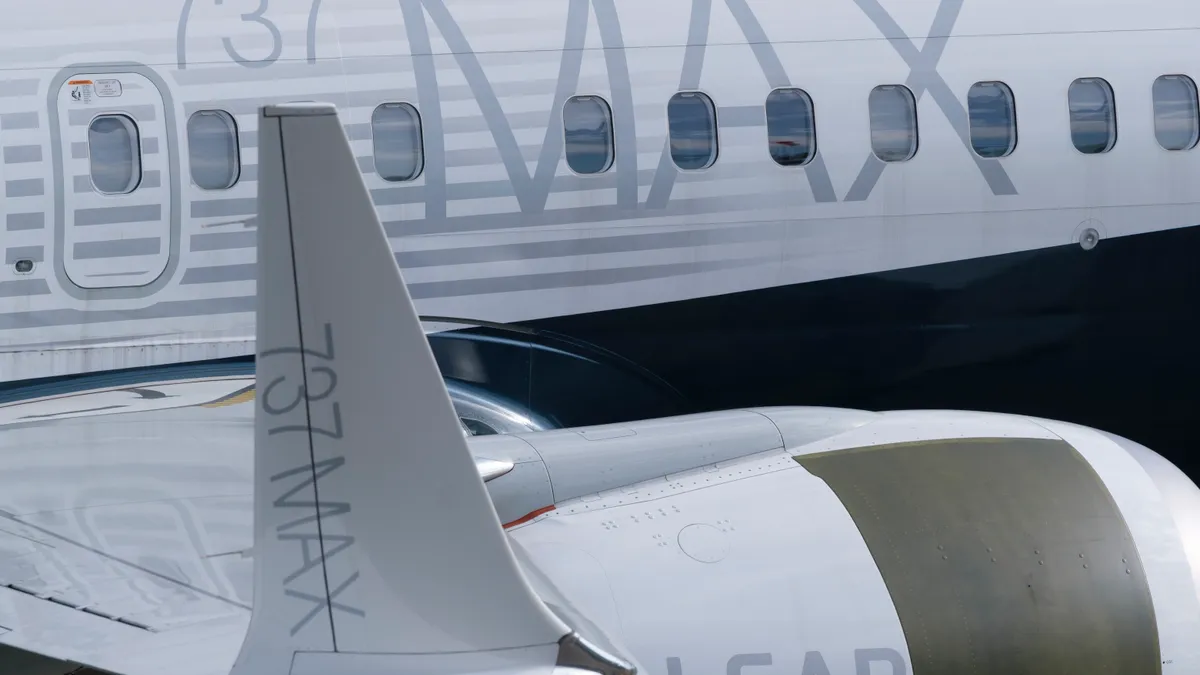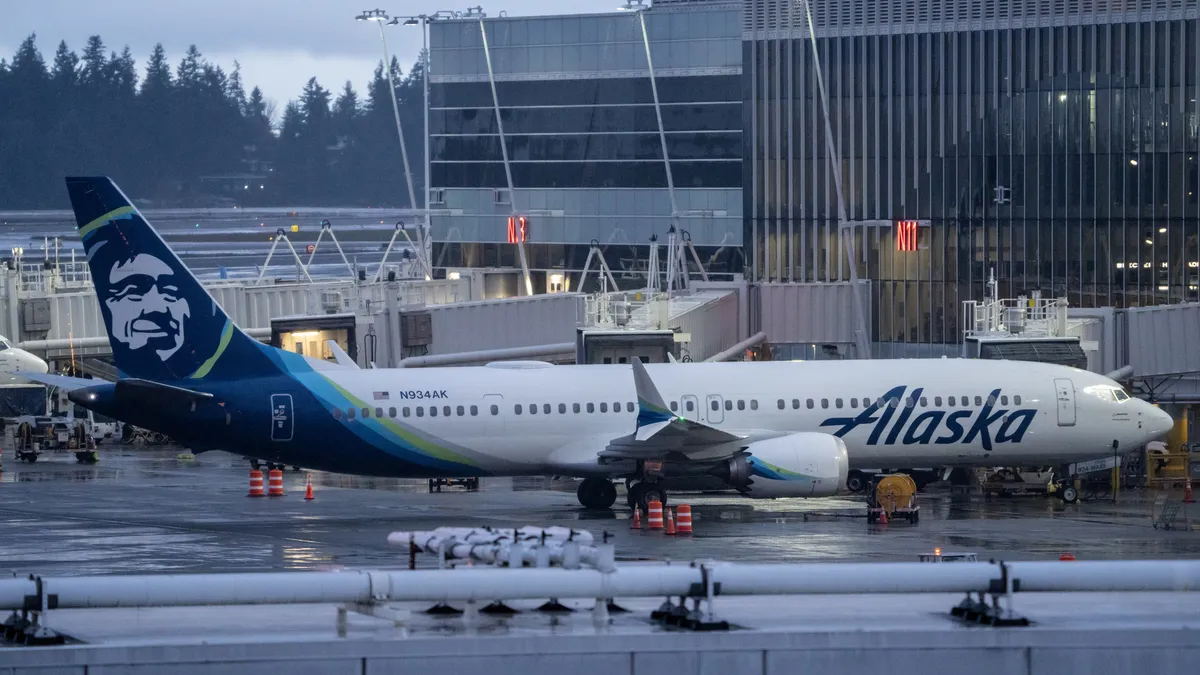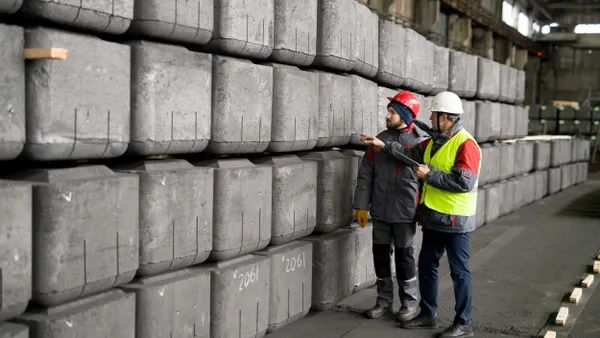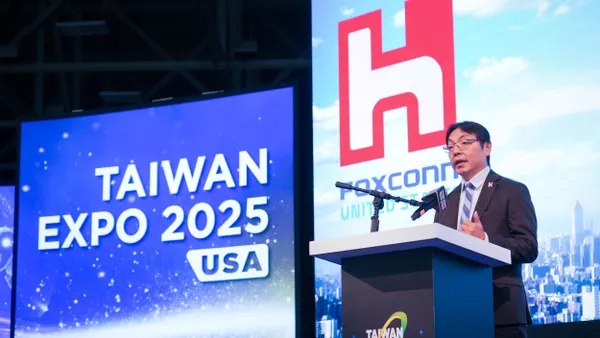Boeing has been working to address a myriad of safety and manufacturing quality control issues in the wake of January's Alaska Airlines door plug blowout incident.
However, the aircraft maker still needs to address another area: its workforce.
Boeing began negotiations in March with the International Association of Machinists District 751 and District W24's Local Lodge 63 at its facilities in Puget Sound, Washington, and Portland, Oregon, respectively.
It’s the first time the two parties have come to the table in 16 years. The last time Boeing and the two IAM districts negotiated a labor contract in 2008, it led to a 57-day strike and halted key production lines, according to a securities filing.
IAM submitted a proposal to Boeing on March 8 with its desired list of contract changes, including a 40% general wage increase, decreased medical benefits costs and enhanced job security for its approximately 33,200 members.
The union's current contract expires Sept. 12. As negotiations between the two parties continue, experts say Boeing’s recent scandals regarding whistleblower congressional testimony and a disconnect between workers and leadership may give IAM a leg up.
“Boeing really has its back against a wall here,” Ryan Stygar, a labor lawyer at Centurion Trial Attorneys, said in an email. “Unions are gaining strength, their demands are more aspirational than usual, and Boeing must negotiate while under pressure from multiple criminal, civil, and public image crises.”
Boeing’s problems are IAM’s advantages
Since the union's last negotiations with Boeing in 2008, the company has had two fatal crashes that resulted in a criminal investigation from the Department of Justice and killed 346 people.
“These negotiations are occurring against twin backdrops of exceptional circumstances, namely, unprecedented labor union power across the U.S. and [a] rapidly weakening bargaining position for Boeing,” Stygar said.
Then there are the extraordinary incidents of this year, including the Alaska Airlines door plug blowout and two whistleblower deaths in the past two months.
“Boeing really has its back against a wall here. Unions are gaining strength, their demands are more aspirational than usual, and Boeing must negotiate while under pressure from multiple criminal, civil, and public image crises.”

Ryan Stygar
Attorney, Centurion Trial Attorneys
Vijaya Venkataramani, a dean's professor of leadership and innovation at the University of Maryland, said these recent events not only damage Boeing's reputation, but negatively impact the employees who worked on the aircraft.
“[Boeing’s] kind of the standard for American innovation and industry and technological development,” Venkataramani said. “When you think about people that are working in a company like that, these are people that are proud of the work that they do."
Still, Venkataramani said Boeing’s issues are likely to affect negotiations, which gives IAM leverage. For the first time in IAM 751’s history, the proposal includes stipulations related to the safety and quality of Boeing's airplanes, IAM District 751 president Jon Holden said in a press conference in March.
“We feel we're often the last line of defense for some of the changes they make," Holden said at the conference. "As union members, we are one of the few groups with the right to stand up to the company when something is wrong.”
The union is also seeking a seat on Boeing’s board of directors to have a say in continuously improving it, the Financial Times reported in March.
Venkataramani noted that such a move from IAM could be part of its strategy to shift company culture.
“It's been a decades' long focus on just profitability, scheduling and cost, and in the whole process, safety concerns have been deprioritized,” she said. “All these incidents have definitely strengthened the hand of the union and have given them incredible leverage going into this negotiation.”
‘The idea of trust’ a key negotiation factor
While Boeing continues talks with IAM, the aircraft maker has already reached a stumbling block with another labor union at its facilities.
On May 4, Boeing locked out its private firefighter force of 125 members of the International Association of Fire Fighters Local I-66 after failing to reach an agreement before the labor union’s contract expired at stations across its Puget Sound and Moses Lake, Washington facilities.
President Biden entered the fray of the negotiations on Thursday, encouraging parties to return to the bargaining table.
Collective bargaining is a right that helps employers and employees.
— President Biden (@POTUS) May 9, 2024
I’m concerned by reports that Boeing locked out IAFF I-66 members. I encourage folks to return to the table to secure a deal that benefits Boeing and gets these firefighters the pay and benefits they deserve.
Jeremy Yip, an assistant professor of management at Georgetown University, said Boeing’s negotiations with various unions involve a level of interdependence between bargaining groups to achieve similar goals.
While Yip noted he's not personally familiar with the aircraft maker and IAFF negotiations, scandals like recent whistleblowers' allegations of Boeing retaliating against them shows a lack of transparency and trust. He added that being in negotiations with various parties can have a reputational effect and impact negotiations like IAM's.
Questions about the safety and stress worthiness of Boeing’s aircraft go back to the perception of the company’s “ability, benevolence and integrity,” Yip said, qualities that impact how parties view its ability to follow through on commitments.
Last month, the Society of Professional Engineering Employees in Aerospace filed a National Labor Relations Board complaint against Boeing, accusing the company of retaliating against two of its union members assigned as Federal Aviation Administration representatives.

The complaint was filed after Boeing quality engineer turned whistleblower Sam Salehpour alleged during a Senate hearing last month that his supervisor threatened him after he raised concerns regarding the Max 787 and the 777 programs.
Stygar suggested IAM could propose strict no-retaliation rules for whistleblowers, require anonymous reports be investigated by third-parties, establish timelines for when Boeing addresses whistleblower reports and seek whistleblower pension benefit protections.
“Boeing has been incredibly shortsighted and it (along with its employees) are paying the long-term price,” Stygar said in an email. “Now, the IAM has an opportunity to strengthen whistleblower protections.”
Timing pressure could impact talks
One element that can help move things forward is impending contract deadlines, Yip said.
While IAM and Boeing still have four months until their current contract expires, the two parties should make intermediate deadlines as they make progress in the negotiations.
“Time pressure, a lot of times, is what enables parties, especially if they're involved in contentious negotiations, to come together,” Yip said. “They shouldn't be threatening, ‘I'll walk away from the table if we don't reach this agreement,’ but just this idea of making sure that there are firmer deadlines in place so that progress is actually being made.”
Stygar added that if Boeing puts workers first, the quality will follow suit. He also noted the best “middle ground” solution would be one that closes the communication gap between Boeing and its frontline employees.
“The fundamental problem at Boeing has been a culture of fear enforced by frequent and blatant retaliation,” he said. “By returning to a culture where employees' concerns are met with openness, we will certainly see higher quality control.”



